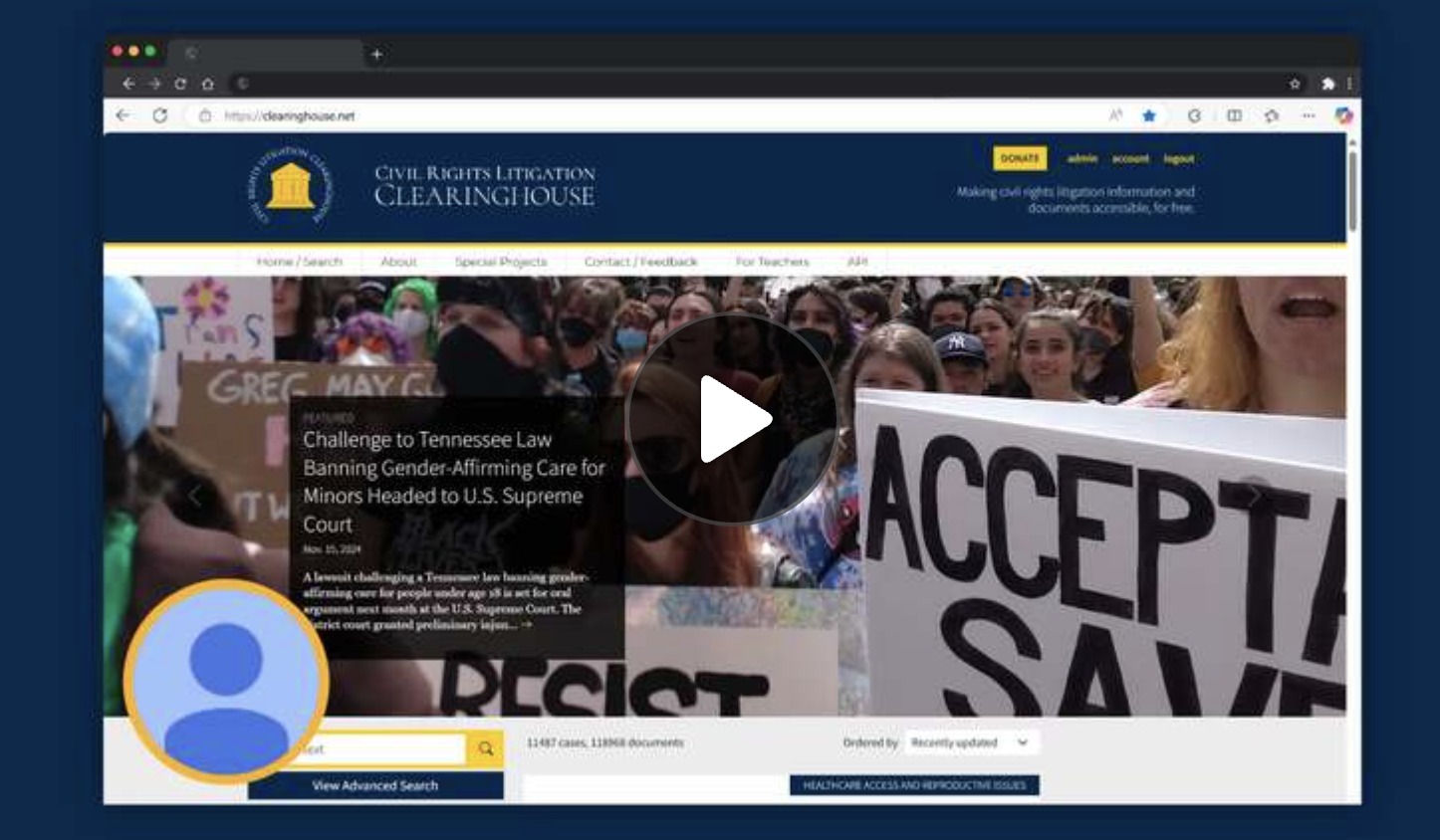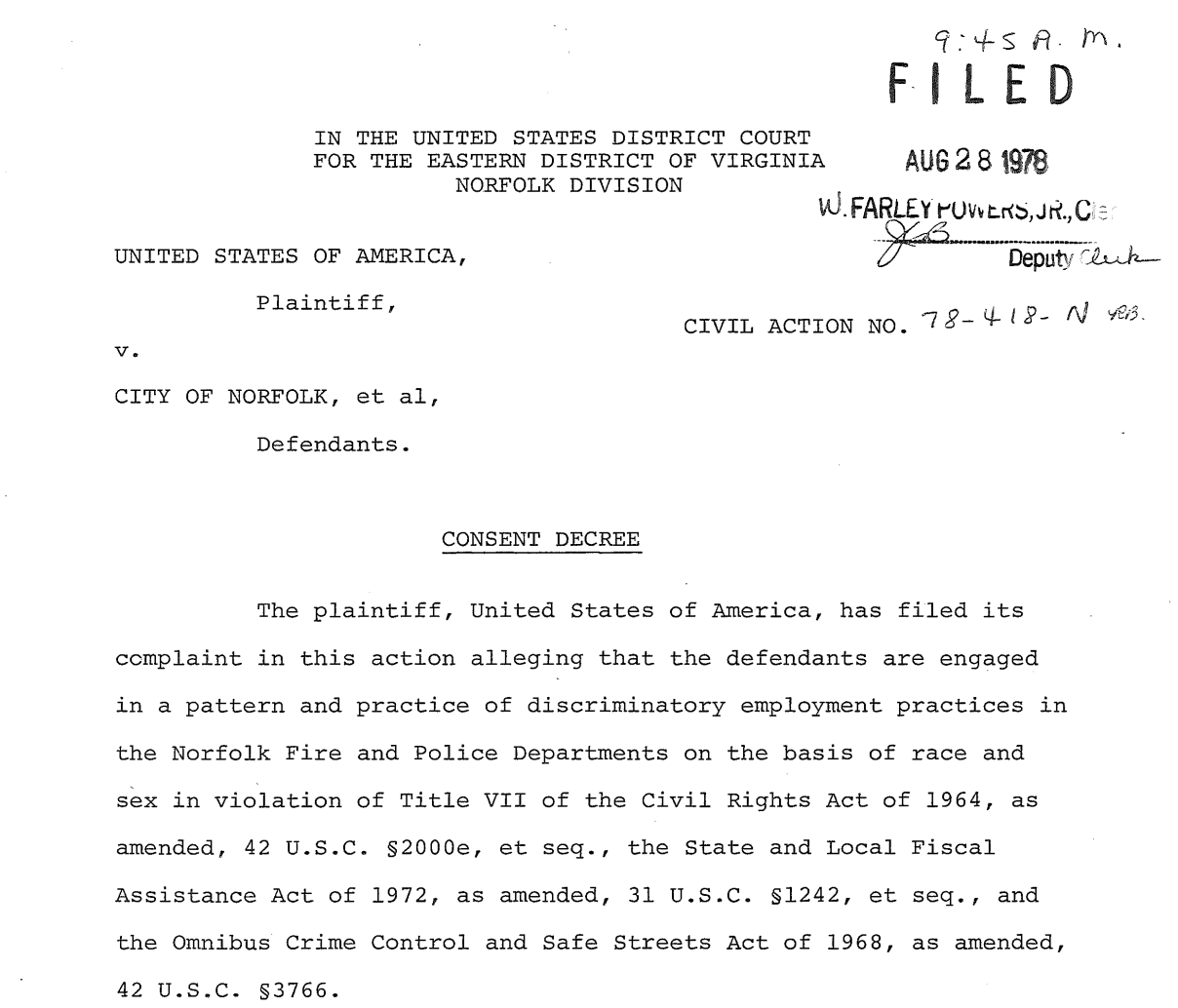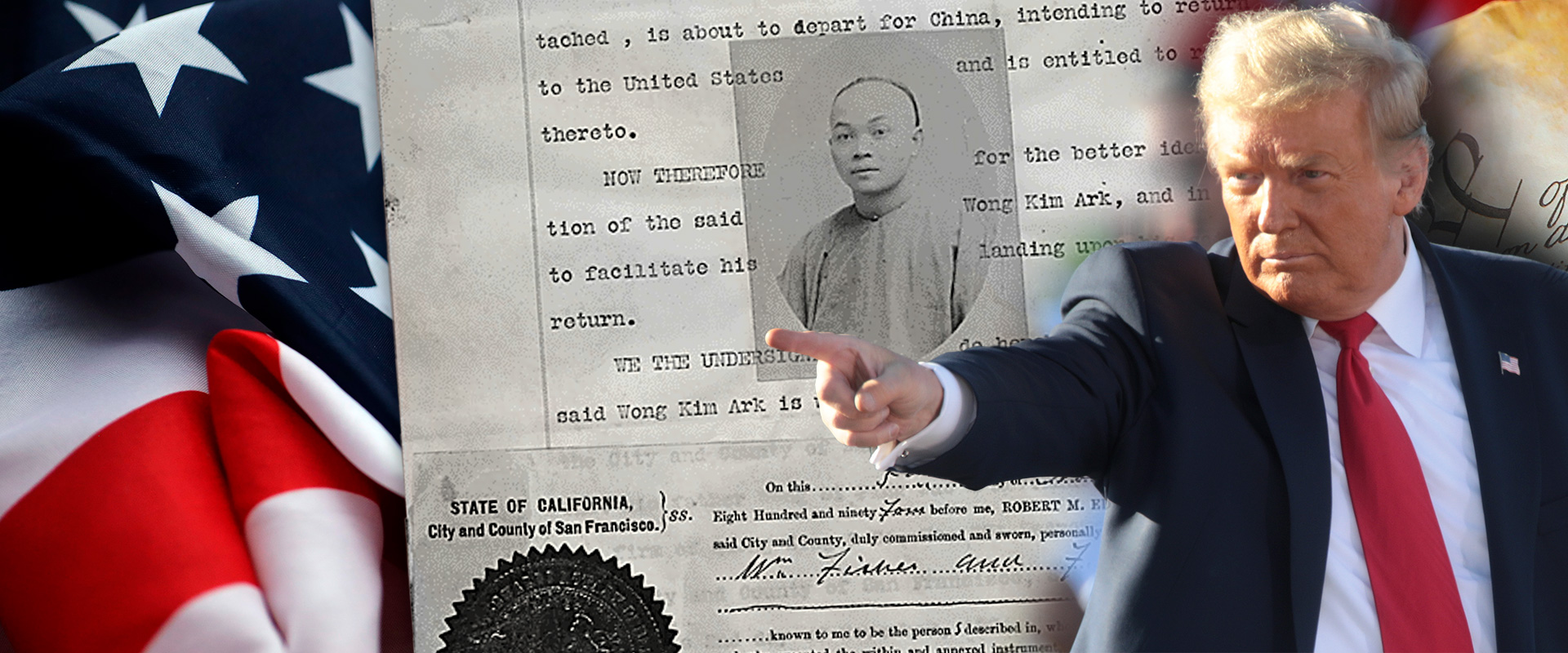Docket Number
Key Dates
Filing Date
Settlement / Judgment Date
Terminating Date
Plaintiffs
Defendants
Case Details
Outcome
Issues
MORE▾
Document Details
Document Filing Date
MORE▾
Document Citation (Choose One)
Use this for most court reporters
S.Ct. reporter and WL only
LEXIS and L.Ed. only
 FEATURED
Featured Case: Challenge to Forced Labor Practices at Angola Prison Goes to Trial
March 3, 2026
FEATURED
Featured Case: Challenge to Forced Labor Practices at Angola Prison Goes to Trial
March 3, 2026
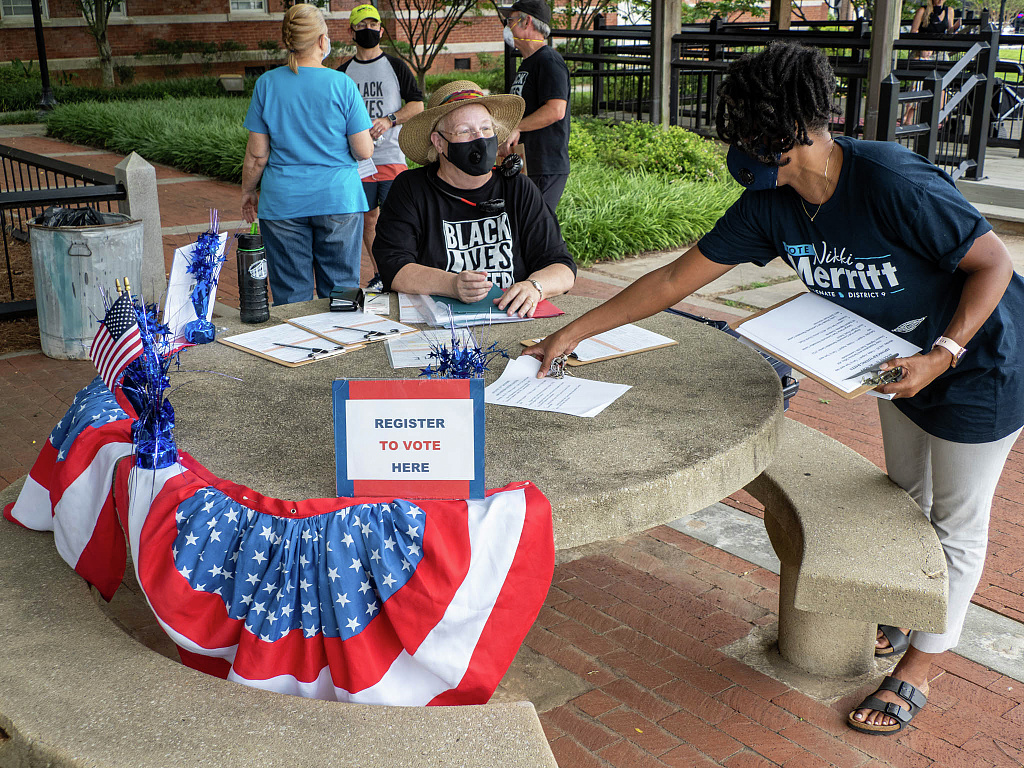 FEATURED
U.S. Department of Justice Voter Data Lawsuits
Feb. 6, 2026
FEATURED
U.S. Department of Justice Voter Data Lawsuits
Feb. 6, 2026
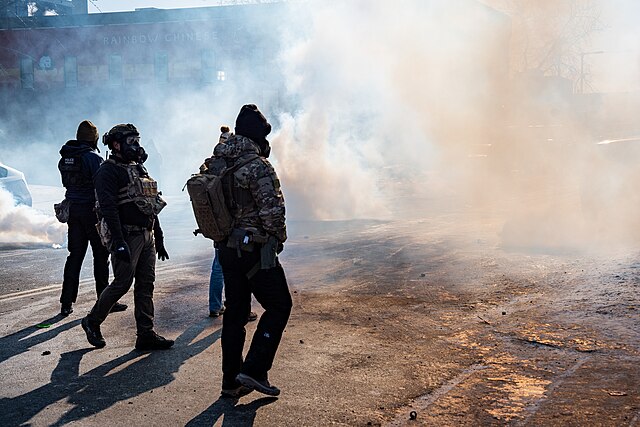 FEATURED
New Case Collection: Operation Metro Surge
Feb. 5, 2026
FEATURED
New Case Collection: Operation Metro Surge
Feb. 5, 2026
